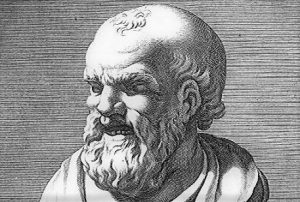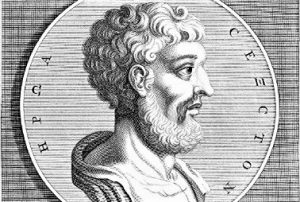Determinism
Determinism is the philosophical proposition that tells us that each event, decision and action is causally determined by an uninterrupted chain of previous occurrences. This does not necessarily mean that humans do not have influence over the future and its events, but that the level at which humans have influence over their future depends on the present and also on the past. Taken to its logical extreme, determinism would argue that the initial Big Bang triggered every action, and possibly a mental thought, through a system of cause and effect. It can be applied to all events that happen in reality or simply to a part of the universe and is considered as a universal thought.
What is determinism?
It is the doctrine or theory that assures that the events that happen in life are or are determined for some reason, which implies that reality is understood as a direct consequence of a cause.
Philosophical Determinism
About
Philosophical determinism tells us that all events are determined by previous causes. It tells us that the universe is rational because absolute knowledge of a situation could reveal its future.
Its bases correspond to the idea that everything can be explained and that everything that is has compelling reasons to be the way it is and not in any other way. Therefore, the individual cannot have any kind of power to choose over his life, as the events that precede it have fully established it.
For them, the future is defined a priori by the present and chance is not part of the cause and effect, furthermore the human being loses responsibility for his actions, because the events are already predetermined.
Classification
Philosophical determinism is classified in two different branches:
- Strong determinism: it says that there are no random or accidental situations and that the future is predictable from the present. The past can also be predicted when we know a situation in the chain of causality.
- Weak determinism: it says that probability is responsible for present facts, or that there is a correlation between the present state and future states.
Other types of determinism
There are different types of determinism, among them we can mention the following:
- Psychological determinism: there are two forms, one says that man always acts for his own interest and for the benefit of himself; it is known as psychological hedonism. The other says that man acts according to his best reason, for himself or for an external agent.
- Biological determinism: tells us that man’s instincts and behaviors are defined by the nature of our genetics.
- Cultural determinism: explains that culture determines the actions that people perform.
- Geographical determinism: explains that different environmental factors determine the way in which man behaves.
- Logical Determinism: based on the notion that the future is defined by the past.
- Fatalistic determinism: it is close to theology and says that all events are predestined to occur. This thought has no laws and acts through the force of a deity.
- Causal determinism: the events that happen are related to the different events and conditions that happened before them. Everything that happens, including the actions of men and their moral choices, is the consequence of an event passed in conjunction with the natural laws of the universe.
- Theological determination: it says that what happens is prewritten by a deity because of his omniscience.
- Linguistic determinism: has managed to create its bases over time to organize thoughts and then express them in gestural and spoken and / or written form through reasoning, conceptions and various forms such as cognitive science and also psychoanalysis.
Representatives
Some of the main representatives of determinism are:
- Gottfried Leibniz: it was a German philosopher, mathematician and politician who wrote “The Principle of Sufficient Reason” a work considered as the root of philosophical determinism.
- Pierre-Simon: known as Marquis of Laplace, he was a French astronomer, physicist and mathematician who worked in Newtonian classical mechanics and introduced determinism into science using the scientific method.
- Friedrich Ratze: he was a German geographer, an exponent of 19th century geographic determinism. His works helped to organize determinism.
- Paul Edwards: great Austrian-American moral philosopher.
- Sam Harris: American-born philosopher and one of the most influential leading living thinkers.
Works
Some works that have been written and that are related to determinism are the following:
- Anthropogeography
- Political geography
- Hard and soft determinism
- Free will
Examples of determinism
Some examples of determinism are the following:
- The genetic code defines our organism.
- Social, cultural, family and economic factors that modify behavior, as well as educational and learning factors.
- Economic situation and way of life that determines behavior.
How to cite this article?
Briceño V., Gabriela. (2019). Determinism. Recovered on 3 May, 2025, de Euston96: https://www.euston96.com/en/determinism/










